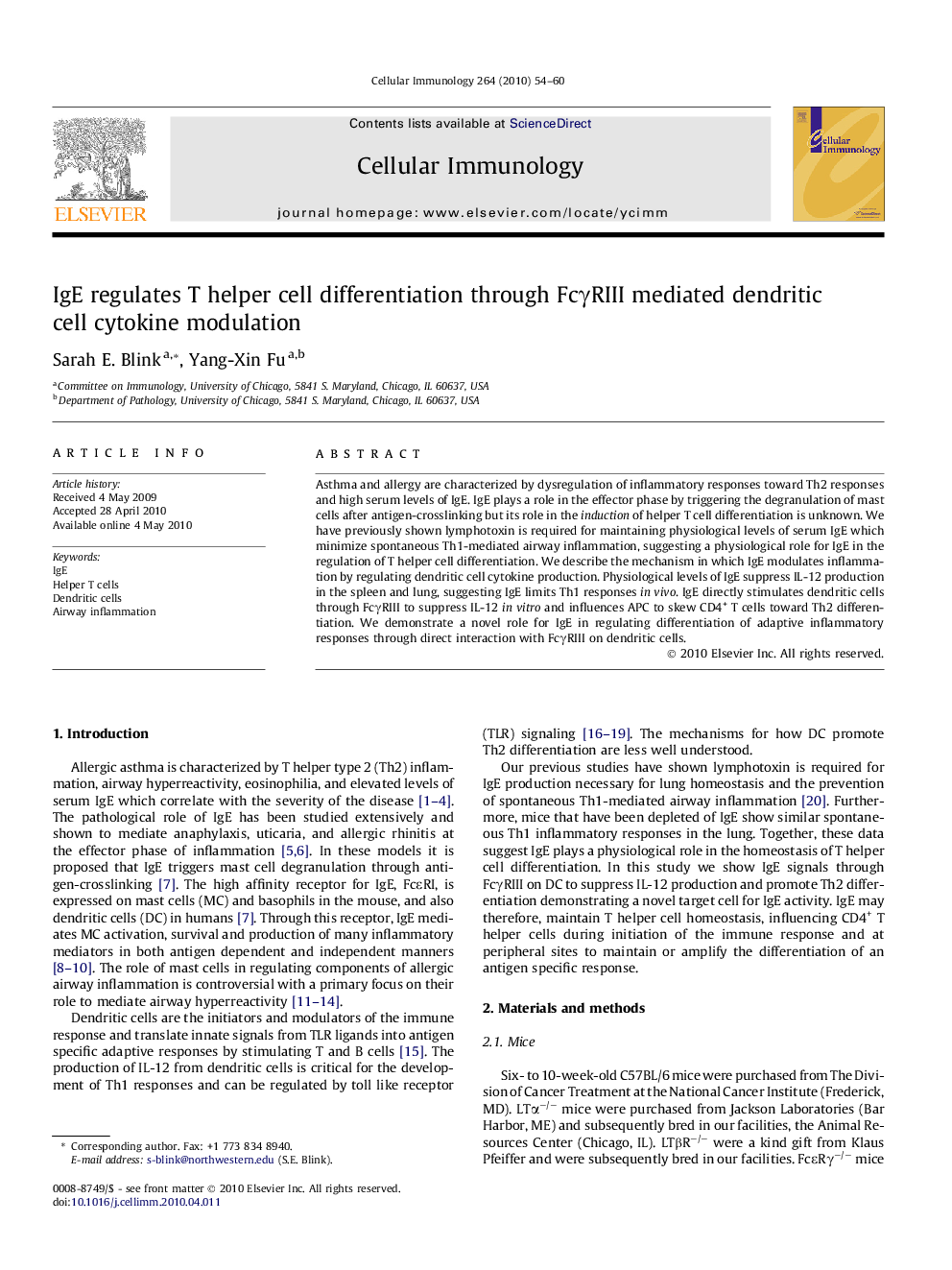| Article ID | Journal | Published Year | Pages | File Type |
|---|---|---|---|---|
| 2167611 | Cellular Immunology | 2010 | 7 Pages |
Asthma and allergy are characterized by dysregulation of inflammatory responses toward Th2 responses and high serum levels of IgE. IgE plays a role in the effector phase by triggering the degranulation of mast cells after antigen-crosslinking but its role in the induction of helper T cell differentiation is unknown. We have previously shown lymphotoxin is required for maintaining physiological levels of serum IgE which minimize spontaneous Th1-mediated airway inflammation, suggesting a physiological role for IgE in the regulation of T helper cell differentiation. We describe the mechanism in which IgE modulates inflammation by regulating dendritic cell cytokine production. Physiological levels of IgE suppress IL-12 production in the spleen and lung, suggesting IgE limits Th1 responses in vivo. IgE directly stimulates dendritic cells through FcγRIII to suppress IL-12 in vitro and influences APC to skew CD4+ T cells toward Th2 differentiation. We demonstrate a novel role for IgE in regulating differentiation of adaptive inflammatory responses through direct interaction with FcγRIII on dendritic cells.
